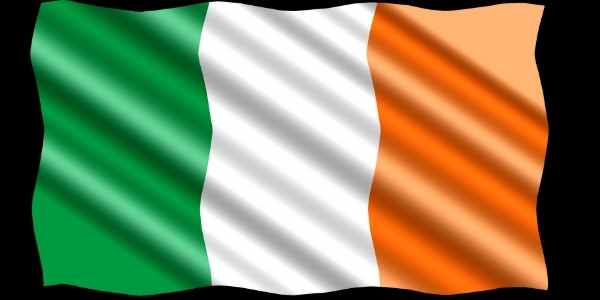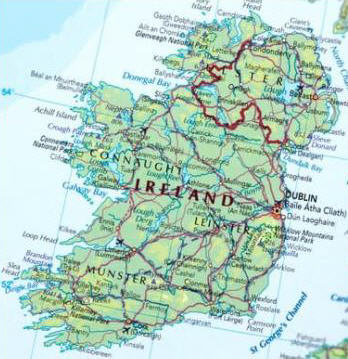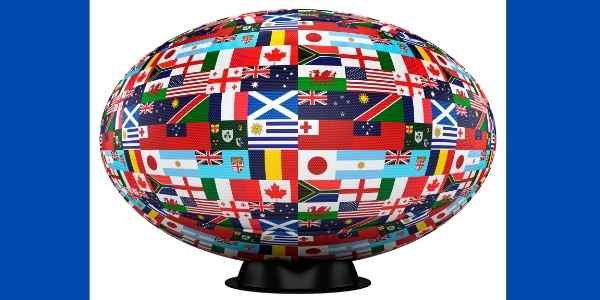Are you wondering why Ireland’s Call is played at away matches for the Irish rugby team? This article explains the reasons.
You’ve probably only heard one verse of the rugby anthem, but there are another two in the song! Read on for the full lyrics.
Full Lyrics Of Ireland’s Call

The song has three verses and a chorus.
Only the first verse is sung at rugby matches. The first verse is followed by the chorus. The band changes key, and the chorus is repeated once.
First Verse
Come the day and come the hour
Come the power and the glory
We have come to answer our country’s call
From the four proud provinces of Ireland
Chorus
Ireland, Ireland, together standing tall
Shoulder to shoulder
We’ll answer Ireland’s call
Second Verse
From the mighty glens of Antrim
From the rugged hills of Galway
From the walls of Limerick And Dublin Bay
From the four proud provinces of Ireland
Third Verse
Hearts of steel and heads unbowing
Vowing never to be broken
We will fight until we can fight no more
From the four proud provinces of Ireland
References In The Song
Here’s some background to understand what the lyrics represent.
Four proud provinces
The “four proud provinces” refer to the four quarters of the island of Ireland. These are Ulster, Leinster, Munster, and Connacht.
Each province has a professional rugby club under the overall management of the IRFU (Irish Rugby Football Union).

Shoulder to shoulder
The provinces are fierce rivals in domestic leagues, going toe to toe in derby matches through the season.
But the national team unites the best players from the four clubs.
Places in each province
The second version names four places. Each is from one of the provinces:
- the glens of Antrim – Ulster
- the hills of Galway – Connacht
- the walls of Limerick – Munster
- Dublin Bay – Leinster
Echoes of the soldier’s song
Ireland’s national anthem, the Soldier’s Song, is like most national anthems around the world. It has a militaristic theme with references to bullets and gunfire.
Ireland’s Call was written to be inclusive of the unionist tradition and move away from military struggles. However, the third verse has an echo of the Soldier’s Song in the line “we will fight until we can fight no more”.
But it’s well understood that this is a sporting metaphor.
After all, Munster supporters have adopted a song called “Stand Up And Fight” as their provincial anthem! That song is about a boxer.
Who Wrote Ireland’s Call?
Phil Coulter was commissioned by the Irish Rugby Football Union (IRFU) in 1995 to write a song for the national rugby team. He composed Ireland’s Call that year.
Coulter is from Northern Ireland. He has written songs for Elvis Presley and Cliff Richard, as well as several Eurovision entries.
Phil Coulter was born in Derry in 1942. Both his parents were musical, with his mother playing the piano.
Coulter took up the piano too and composes his music on the instrument.
What other songs has Phil Coulter written or co-written?
Most British and Irish people over forty can hum along to Cliff Richard’s Eurovision entry “Congratulations”.
It is just one song from a long-standing partnership between Coulter and Bill Martin. Martin wrote the lyrics, while Coulter wrote the music.
The duo also composed Sandie Shaw’s Eurovision song, “Puppet On A String”.
Elvis Presley is the most famous singer of a Coulter song, with “My Boy” in 1973. The song was actually a translation of a French ballad.
Coulter’s best-known song now is probably “The Town I Loved So Well”. It’s about his hometown of Derry and is a favorite of President Bill Clinton.
Is “Ireland’s Call” Only Played At Rugby Matches?
Rugby League isn’t as big in Ireland as Rugby Union, but we do have a national League team. They too have adopted Ireland’s Call as an anthem.
Most national teams in Ireland solely represent the Republic. For example, both the Republic of Ireland and Northern Ireland have separate soccer teams.
Rugby is unusual in that there is one team representing two political entities. However, it’s not the only sport on the island to do so. Cricket and hockey are also played as one team across two borders.
Both cricket and hockey also play Ireland’s Call at international matches.
Why Was The Song Commissioned?
Before the introduction of Ireland’s Call, only the national anthem was played for the Irish rugby team.
But most of the Ulster players have traditionally been from the Unionist tradition and are British citizens. Their national anthem is God Save The Queen.
It was not considered acceptable to play both the Irish and British national anthems for an Irish rugby team.
The Ulster players stood tall during the Soldier’s Song but kept their mouths firmly shut. Some Irish people weren’t happy about this. But rugby supporters in general simply welcomed the inclusion of the northern province.
Events before the 1987 Rugby World Cup
In 1987, Ireland was preparing to play in the World Cup.
The Provisional IRA, a violent nationalist group, targeted the car of a top judge in Northern Ireland. They detonated a bomb laid on a road near the border. The blast killed Lord Justice Maurice Gibson and his wife Cecily.
Three Ulster players were travelling in a car on the same road. They were heading to Dublin to take part in a national training camp.
David Irwin, Philip Rainey, and Nigel Carr were injured by the blast. Carr’s injuries ended his rugby play days.
World Cup 1987

Ireland’s national anthem ends with a line that translates as “amidst cannon’s roar and rifle’s peal, we’ll chant a soldier’s song.”
It was considered unacceptable to belt this out so soon after the atrocity that injured players representing the green jersey.
The IRFU scrambled to find another song. They went with “The Rose Of Tralee”, which was played before Ireland’s matches at the World Cup.
It’s a lovely traditional ballad, but not a song to get the blood pumping.
My memory is that it was quietly shelved after this World Cup, and we reverted to the Soldier’s Song.
World Cup 1995
By 1995, reconciliation across the border was a top priority in Irish politics. With a World Cup approaching, the IRFU went looking for a song that would be inclusive of the nationalist and unionist traditions.
This led them to commission Phil Coulter to compose a new anthem.
The song was launched to the general public in April of 1995.
General Reception To The Song
I remember being unenthusiastic about the new song when it was rolled out at the 1995 World Cup. I thought it was too slow for a crowd-rouser and the melody was a bit generic.
And I was one of the kinder critics! There were plenty of rugby supporters who didn’t like being told what to sing by the powers-that-be.
But time and rugby seasons move on. Ireland’s Call is now part of Irish rugby tradition. The crowd will belt it out with gusto.
Why Do Some Players Not Sing Ireland’s Call?
Some players don’t sing Ireland’s Call before the match, but this is not due to political motivation.
Although a rousing song can get the adrenaline going, some players prefer to run through a mental routine while waiting for the match to begin.
Ireland’s Call was introduced to be inclusive to Ulster players, but even some Ulster players choose not to sing it.
Rory Best was captain of both Ulster and Ireland for several years, and he didn’t sing anything before a match. He explained that he preferred to keep his emotions in check in the run-up to the start of a game.